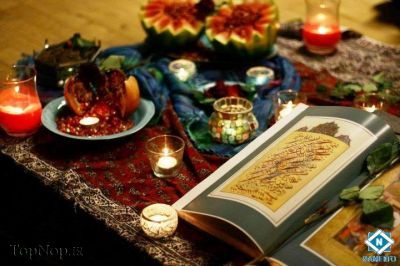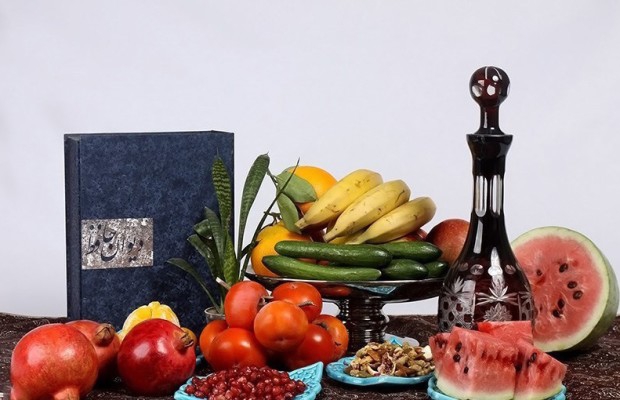 Iranians perk up as they approach the final days of autumn. They have work to do for celebrating Yalda night, which has the year�s longest hours of darkness.
Iranians perk up as they approach the final days of autumn. They have work to do for celebrating Yalda night, which has the year�s longest hours of darkness.Sitting down with their families and elders to mark this ancient tradition, they eat pomegranate, watermelon and quince, as well as nuts and sweets.
Storytelling and recitation of Hafez�s poetry are part of the annual custom.
An exhibition is underway at Tehran�s Imam Khomeini Grand Prayerground to promote Yalda night and sell things needed to observe the custom. It will run until Dec. 19.
Morteza Yar-Mohammadi, a member of the board of directors of the Association of Wholesale Food Dealers, told Iran Daily that given the rise in the prices of nuts and other items served in Yalda night, these products are sold 30 percent cheaper than market rates at the exhibition.
Yar-Mohammadi said there are 150 pavilions selling fruits, nuts, cookies and souvenirs of other provinces such as Khorasan Razavi, Kermanshah, Kerman, Markazi and Isfahan.
Mohammad Mirveisi, one of the pavilion owners, said pomegranate, watermelon and quince are considered autumn fruits.
�People start eating citrus in winter,� he added.
Mirveisi said the harvest season for pomegranate is October-November.
Fruits feature strongly in Yalda traditions because of their nutritional benefits and for bringing color to the Yalda table.
According to the Holy Qur�an, pomegranate is one of the fruits of paradise.
�Pomegranate purifies the blood and alleviates depression,� Mirveisi said.
�It is also useful for those suffering from diabetes, relieves urinary tract infection and cools hot-tempered people.�
Hossein Qorbani is another pavilion owner and a member of Saveh Pomegranate Growers Association.
He has obtained a license from a European agency to grow organic pomegranates.
Qorbani said Saveh gardeners usually sell 10 percent of their pomegranate crop in Yalda night.
Saveh in Markazi province is well known for its premium pomegranates across Iran and has 8,500 hectares under pomegranate cultivation.
Iran has 82,000 hectares under pomegranate cultivation.
Qorbani said the provinces of Fars, Khorasan Razavi, Isfahan and Markazi are top pomegranate growers.
�Red and black pomegranates are placed on Yalda table. Black pomegranate is good for treating the cold, cough and throat pain,� he said.
Ebrahim Qadiri, a producer of organic quince from Mahan, Kerman province, said quince harvest starts from mid-autumn and continues until early December.
He added that quince mostly grows in the provinces of Kurdestan, Hamedan, Ardebil and Isfahan.
�Mahan boasts top-quality quinces,� he said.
Quince is used for treating abdominal infection, diarrhea, breathlessness and headache. It is also helps cure bad breath and reduce cholesterol level and blood pressure.
Ali Tahmasbi, a watermelon seller, said watermelons are kept in cold storehouses for use in Yalda night.
Watermelon is a must on the Yalda table. It is planted in all parts of Iran and even harvested in winter in southern cities like Dezful, Minab and Jiroft.
�Watermelon dilutes the blood and prevents cardiovascular diseases,� he concluded.
By Iran Daily
The Iran Project is not responsible for the content of quoted articles.











